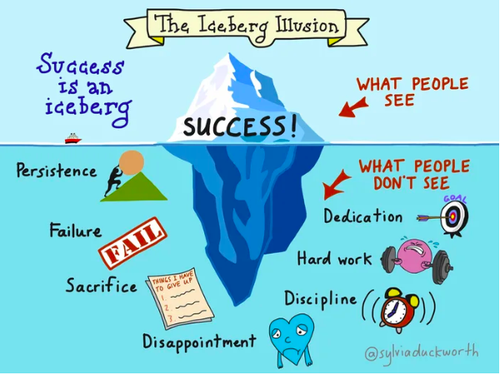Learning outcomes
Tamariki understand the benefits of making mistakes and how to create personal wellbeing goals.
Tamariki understand the benefits of making mistakes and how to create personal wellbeing goals.
For this activity, print a copy of our Amazing Brain worksheet for each student.
(If tamariki are completing the worksheet at home and have misplaced the print-out or don't have a printer, they could answer the questions in an exercise book.)
Research shows that children who are praised for qualities they can control like effort and giving things a go achieve better results than those who are praised for being ‘clever’ or getting something right.
This activity fosters a growth mindset by celebrating the process of trying new things, making mistakes and persevering.
The way we foster a growth mindset is by helping tamariki see the value of making mistakes and persevering. The one word that's crucial in this process is 'yet' such as changing the sentence ‘I can’t do it!’ to ‘I can’t do it yet.’
Start by showing one or both of these videos:
- Brain Jump With Ned the Neuron
- Sesame Street do Growth Mindset
Reinforce that we are learning any time we give something a go, or stick at something tricky. That's why finding something challenging, is actually good for us! While we may not be able to do something now, we can learn how. We can't do it YET!
After your kōrero, hand out our Amazing Brain worksheet and ask them to complete the first three questions (then stop before setting their SMART goal).
It will be important to let tamariki know that feeling like we're not good at some things, is very normal. Perhaps draw from some of these real-life examples of successful people's perceived failures, that things didn't always come easily.
We also love this image which you may like to share with your tamariki, even working through it with them on the board.

Before continuing with the second half of the worksheet, you may like to have some kōrero around goal setting, so they are able to create a goal that is Specific, Measurable, Achievable, Realistic and Time-based (SMART). The achievable part is really important! Encourage them to start with something they reckon they'll be able to do, if they stick at it.
You might also like to chat about how great it can be to break our big goals into smaller, bite-sized chunks, that we can tackle one by one. Why might we do this? Because doing so can help us take positive, manageable steps in the right direction.
Once tamariki have completed their worksheets, find ways to keep their goals front of mind and support them with the tiny steps they'll need to take along the way.
Creating an artwork may be one way, a regular 'growth mindset' check-in session might be another. You could also bring these goals into their parent conferences in some way, so they can support tamariki to learn these new skills.
Another great way to support tamariki to reach new goals is for them to know their individual strengths.
A great place to start is with Discover Your Strengths
Another great way to boost tamariki confidence and self-esteem in order to help them achieve their goals is with Compliment Poster. where their peers let them know all the great things about them for their perspectives.